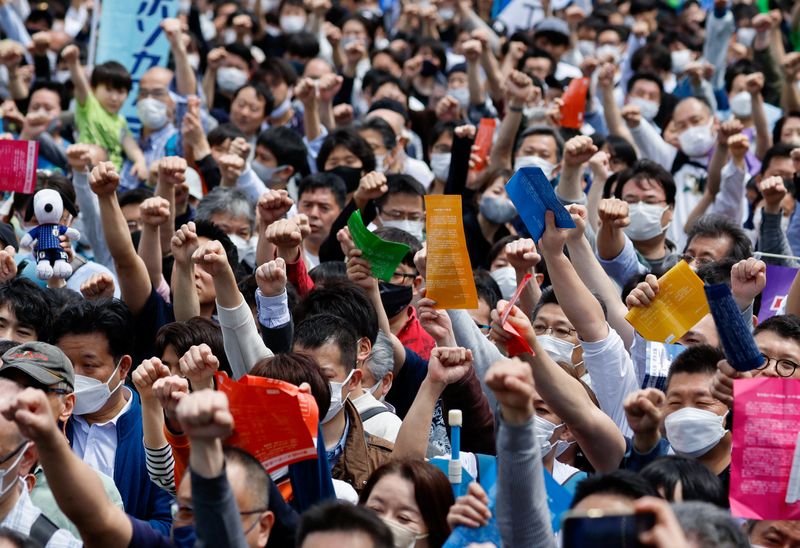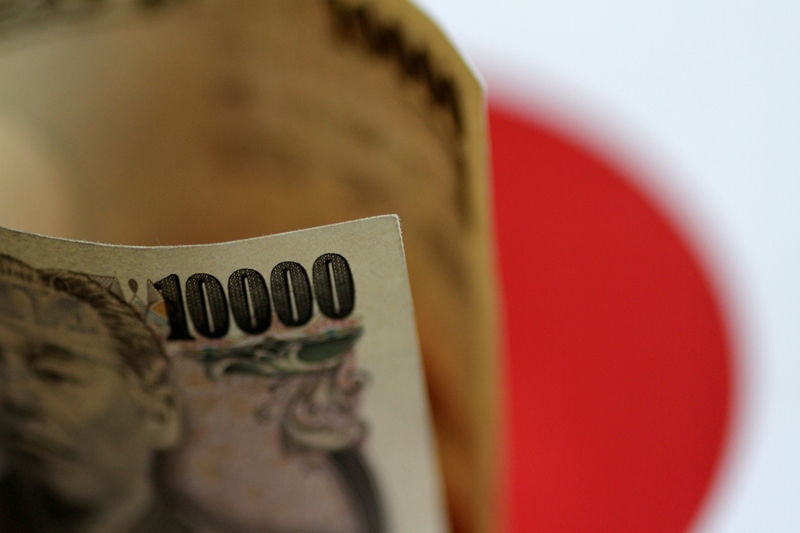By Makiko Yamazaki and Kentaro Sugiyama
TOKYO (Reuters) -Japan's largest labour union group said on Friday it will seek wage hikes of at least 5% in 2025, similar to this year's hefty increase, although economists doubt that another such bump is realistic.
The announcement by Rengo means debate about pay rises for next year will begin in earnest. Prime Minister Shigeru Ishiba, who took office this month, has made wage hikes a top priority, seeking to help support a still fragile economic recovery.
The Bank of Japan will also scrutinise annual wage negotiations. It's keen to see solid wage growth underpin the economy as it moves to normalise its ultra-easy monetary policy.
Japanese companies agreed to an average 5.1% wage hike earlier this year, the biggest increase in three decades, following a 3.5% rise last year, according to Rengo. The union group has about 7 million members.
"We aim to keep wages, the economy and prices on a stable track to prevent a return to deflation," Rengo President Tomoko Yoshino told a news conference.
Many economists are sceptical.
"We expect the level will be around 4% to 4.5% because inflation has stabilised and doesn't need to be reflected so much in wages," said Keiji Kanda, a senior economist at the Daiwa Institute of Research.
Inflation-adjusted wages in Japan turned up in June for the first time in more than two years but slipped again in August.
Rengo said in a statement it will focus on achieving wage hikes at smaller firms, setting a target of at least 6% to narrow the income gap with workers at large firms.
Kazutaka Maeda, an economist at Meiji Yasuda Research Institute, said, however, that some smaller firms have little financial leeway after lifting wages to cope with labour shortages.
The BOJ also warned in a recent report that some small and medium-sized firms were struggling to earn enough profits to hike wages, a development that "required vigilance."
Maeda expects wage growth next year to be at least 4.5% but short of 5%. That would be substantial enough to keep alive expectations of further rate hikes, he said.

Rengo will finalise its position on next year's wage negotiations in December. Around March, management at major firms meet with unions for wage talks.
Japanese wages were stagnant for decades until 2022 when rising raw material costs pushed up inflation and piled pressure on firms to compensate employees with higher pay.
